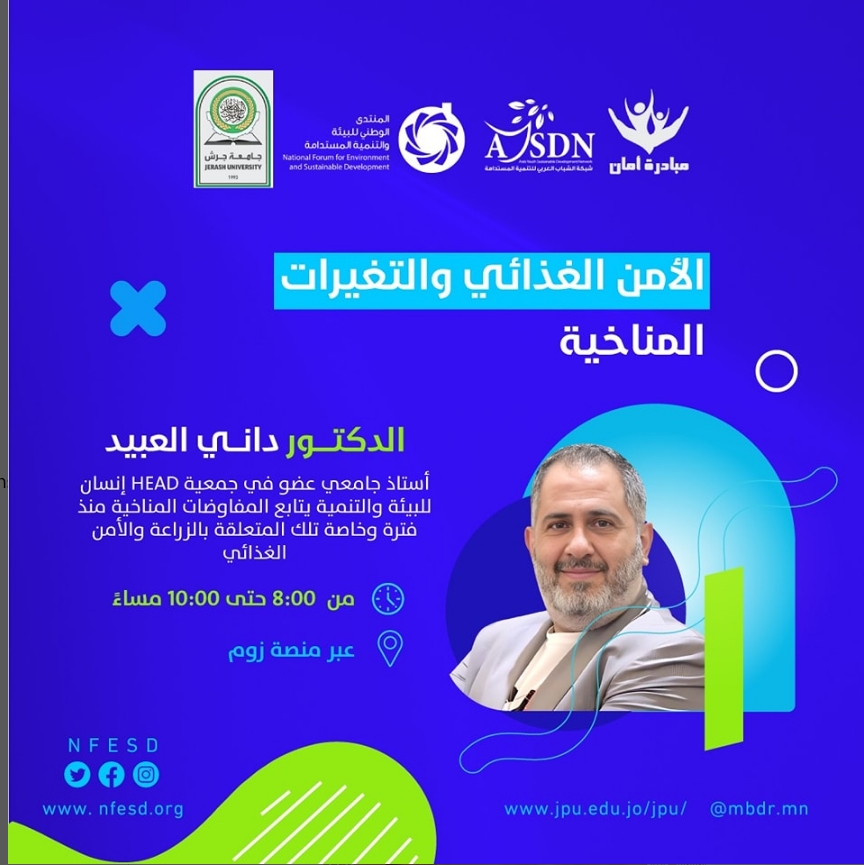Session Nine ” Food Security and Climate Change “
Food security and climate change : indicators, impacts and visions .
As part of the comprehensive training program to qualify youth for climate work (2024), the ninth session titled “Food Security and Climate Change” was held on the evening of Wednesday, June 26, featuring Dr. Dani Al-Obaid, a member of the Human Association for Environment and Development and an expert in environmental, climate, and food security issues.
The session discussed climate change in the Arab region and its impacts on food security and the agricultural sector, considering various dimensions affecting populations amid record global temperature increases and other expected climate changes in the region.
Dr. Dani Al-Obaid opened his discussion by stating that addressing climate change in the Arab region provides a range of indicators, extreme weather phenomena, seasonal projections, and valuable insights into the impacts of climate change.
He added that one of the prominent extreme weather phenomena is prolonged drought, which has numerous indicators and significant impacts indicating extreme climatic effects, likely to affect the agricultural sector and those working in agriculture who are still impacted by rising temperatures.
Al-Obaid explained that the expected degree of climate impact varies widely from moderate to severe, generally increasing from north to south across the Arab region.
Food security is achieved when all people, at all times, have physical and economic access to sufficient food, according to Al-Obaid. He emphasized the importance of assessing differences in food security conditions among communities, as individuals experience food security in varying degrees and are affected differently by negative events.
He continued, stating that having sufficient food today does not guarantee food security if there is no ongoing access to food. Despite growing awareness of the importance of consistent access to food, this does not adequately address the availability of sufficient food. Even with financial resources, food may not be available in markets, putting people at risk of food insecurity, as seen during the COVID-19 pandemic and the Russian-Ukrainian war.
According to Al-Obaid, the importance of food use has enriched understanding, as food security now pertains not only to the quantity of food consumed but also to its quality.
The comprehensive program to qualify youth for climate work (2024), launched by the National Forum for Environment and Sustainable Development in partnership with Jerash University, the Arab Youth Network for Sustainable Development, and the Aman Initiative in Jordan, is the first training program of its kind in the Arab arena.

